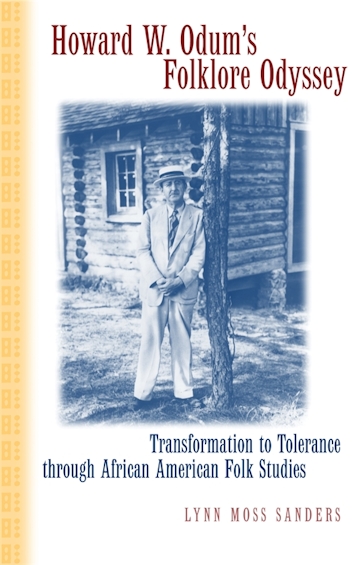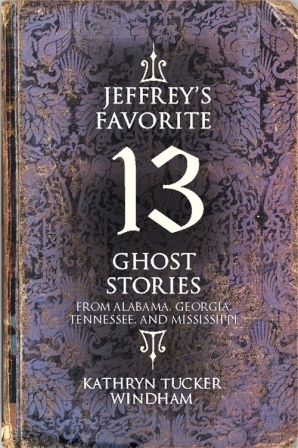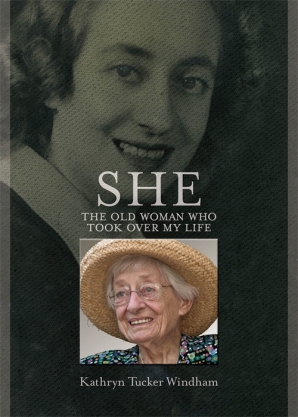Howard W. Odum's Folklore Odyssey
Transformation to Tolerance through African American Folk Studies
Title Details
Pages: 204
Illustrations: 11 b&w photos
Trim size: 5.500in x 8.500in
Formats
Hardcover
Pub Date: 12/22/2003
ISBN: 9-780-8203-2549-1
List Price: $48.95
Related Subjects
SOCIAL SCIENCE / Folklore & Mythology
BIOGRAPHY & AUTOBIOGRAPHY / Social Scientists & Psychologists
Howard W. Odum's Folklore Odyssey
Transformation to Tolerance through African American Folk Studies
Skip to
- Description
- Reviews
Howard W. Odum (1884-1954), the pioneering social scientist and founder of the University of North Carolina's department of sociology, played a leading and well-documented role in the modernization of the South. This is the first book-length study of Odum's contributions to southern folklore, which had important but largely unappreciated consequences for his legacy of social justice.
Lynn Moss Sanders shows how Odum, as a collector of African American blues and work songs, anticipated some important precepts of modern folklore. Notably, Odum perceived the benefits of a collaborative and nonhierarchical approach to folk studies. Influenced by a racially tolerant former student and by one of his black folk informants, Odum changed his previous paternal, segregationist attitudes about race.
Comparing Odum's two song collections, The Negro and His Songs (1925) and Negro Workaday Songs (1926), Sanders links the growing influence of Odum's coauthor and former student, Guy Johnson, to a decrease in instances of racial condescension between the first and second book. The three "folk" novels in Odum's Black Ulysses trilogy (completed in 1931) also reveal a progressive refinement of Odum's racial views. The change, Sanders believes, came with Odum's growing ability to see John Wesley "Left-Wing" Gordon, the black, working-class model for the trilogy's hero, as a friend rather than simply as a representative of "the Negro."
From his authorship of Social and Mental Traits of the Negro (1910), now a relic of scientific racism, to his final publication, Agenda for Integration, Odum exemplifies how the study of folklore changed the folklorist—a change felt by a whole generation of southern liberals whose work Odum encouraged and shaped.
Draws attention to an underappreciated aspect of the mid-twentieth-century South’s leading sociologist. Odum, best known today for his exhaustive documentation of the South’s many deficiencies, also had a warm appreciation of the region’s folk cultures. In this fascinating study, Sanders examines Odum’s pioneering work on African American folklore, showing how he not only learned about his black ‘informants,’ but learned from them.
—John Shelton Reed, University of North Carolina at Chapel Hill
Sanders gives new reason for a close re-reading of Howard W. Odum's folklore publications. Odum as mentor and as collaborator underlie his historical and contemporary importance. Sanders argues that folklore, because of its 'people-centeredness' and 'nonhierarchical nature,' was a logical outlet for Odum's intellectual interests in race relations and the new South.
—Karen Baldwin, coeditor/coauthor of Herbal and Magical Medicine: Traditional Healing Today
Changes overcoming southern society in general in the twentieth century are implicated in this illuminating study of Odum.
—University Press Book Review
Sanders offers a fascinating and exhaustive discussion of these novels that will be of great use and interest to a wide range of serious readers, from folklorists to African American literary scholars . . . Sanders more than accomplishes what she has set out to do. The benefit to her readers is a deeper understanding of one of the New South's most important versatile intellects.
—Register of the Kentucky Historical Society
A welcome addition to the study of a man who had many talents and who used those talents to do much good.
—Journal of Southern History
Sanders has found a way to reintroduce a figure of significance, one whose career prompted the Washington Post to eulogize him as the 'Eli Whitney of the Modern South.' Indeed, Sander's study of Howard Odum's life and works endures that readers will contemplate his role in shaping the modern South.
—North Carolina Historical Review



